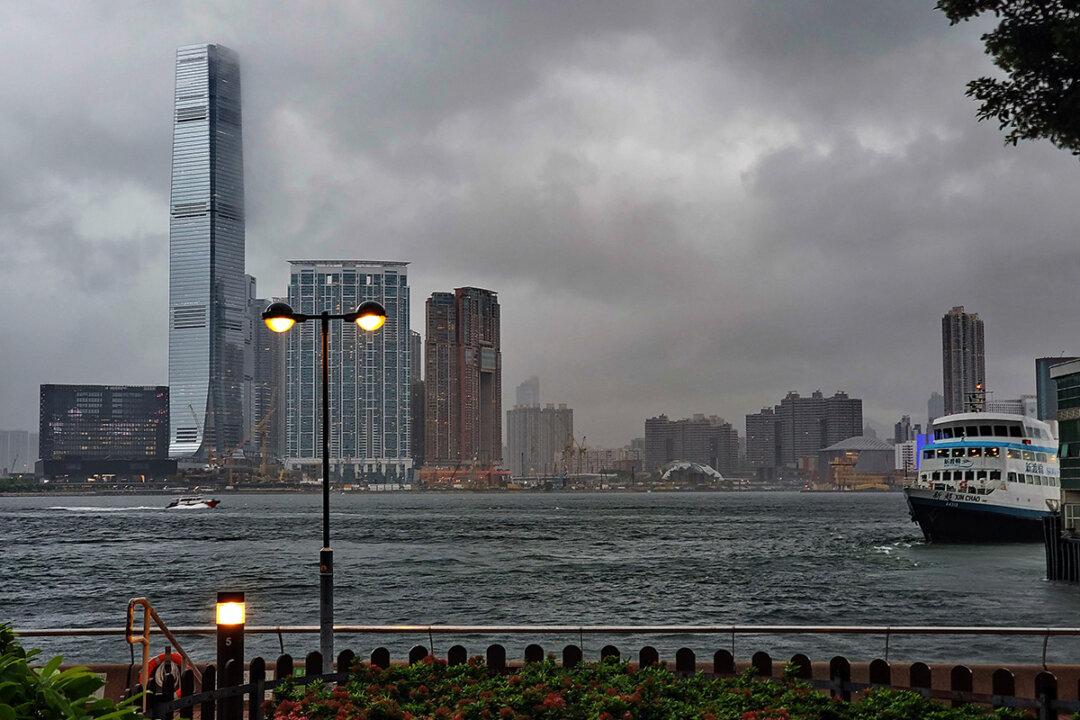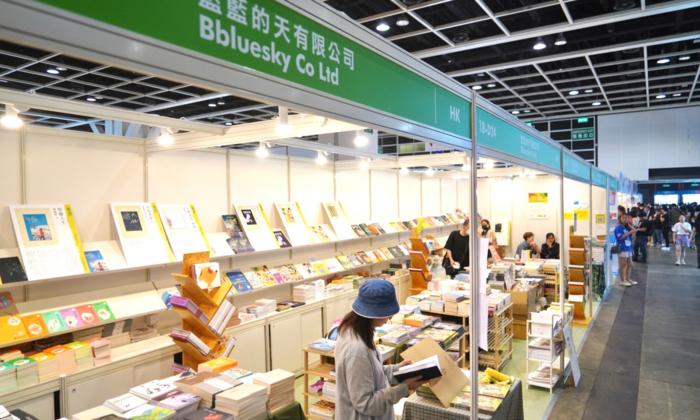Hong Kong Journalists Association (HKJA), the city’s major journalist union with a long-standing history of enhancing press freedom and professional standards, moves on with its work with a newly elected executive committee, amid shrinking finance, stifling press freedom in the territory, and mounting political challenges.
The group, which has been encountering the pressure of disbandment upon heavy criticisms from the pro-Beijing camp in Hong Kong, has survived so far. However, it is facing financial difficulties upon a significant reduction in membership. Its current financial situation cannot sustain its operation for another ten years, said its newly reelected chairman Ronson Chan Ron-sing.
HKJA held its annual general meeting last week on June 10, during which nine members of its executive committee were elected, with Ronson Chan reelected as the Chair for his third term since 2021 when he was first elected the head of the group.

A Shrinking Membership and Financial Woes
After the meeting, Chan talked to the media about HKJA’s current difficult situation of shrinking membership and the subsequent weakening financial strength.Chan said HKJA Needs to Find Other Financial Ways to Keep It Going
At present, there are about 330 members at HKJA, with 220 full members and the remaining other categories of members (such as those engaging in the public relation industry and student members) [the numbers given by the HKJA admin person over the phone], a scale heavily reduced from that of three years ago, Chan said. He was quoted last year that the number of full members reached a peak in 2019 of close to 900.A Stifling Press Freedom Environment
The plunging membership comes at a time of political deterioration in Hong Kong in recent years when major outspoken media outlets, such as The Apple Daily, The Stand News, and Citizen News, have been closing down out of political pressure. Later, numerous management staff and columnists of these media were arrested and have been remanded since 2021 under the accusation of violating the Hong Kong National Security Law enacted in 2020.Afterward, numerous small-scale independent online media, including Facebook news pages, have closed down one after another to avoid imprisonment. The international non-governmental organization, Reporters Without Borders, announced the world’s press freedom index in May 2023. Hong Kong, once internationally renowned for its freedom, now ranks 140—below Columbia and Cameroon.
In the last few years, HKJA has repeatedly been undergoing heavy criticism from Beijing’s mouthpieces in Hong Kong, such as Ta Kung Pao and Wen Wei Pao, which accuse HKJA of committing numerous “evil deeds,” including “in collusion with foreign forces” as its former chairwoman Mak Yin-ting lobbied the U.S. authority for its support of preventing the Hong Kong government from amending the extradition law that would allow suspects to be extradited to mainland China for trial. Other accusations include indulging the protestors who fought against the extradition law amendment to engage in demonstrations in 2019 when some reporters wearing HKJA identity cards took shots in front of the police to deter police actions. HKJA’s setting up of “The Journalist Protection Fund” is also accused of “backing up reporters to oppose the government.”
Sails On Despite Political Pressure
With mounting political pressure and self-disbandment of over 60 Hong Kong civil groups, including trade unions, rights groups, and professional organizations, HKJA last year passed a decision to lower the threshold on self-disbandment, from the portion of five-sixths to only a half of all members voting for it. Ronson Chan 2022 commented that members were worried about what had happened in Hong Kong, but none were inclined toward disbandment then.Growing Tension with the Government
There has been growing tension in the relationship between HKJA and the Hong Kong government for the last few years when resistance campaigns have been against the authority. While the Hong Kong government repeatedly reprimanded the veteran cartoonist Zunzi’s satirical political cartoon works as “not true to the facts,” HKJA passed a decision at its annual general meeting last week to accept Zunzi as a lifelong permanent member to honor his contribution to the press. This comes after his political comic series was removed from the Chinese newspaper Ming Pao last month.War of words between HKJA and the government is not a rare scene in recent years. One example is both the HKJA and the Hong Kong Police Force issued condemnations against each other on the incident of the former chairwoman cum freelance reporter for Radio France Internationale Mak Yin-ting being taken away from Victoria Park to the police station on June 4 Memorial Day early this month. Mak said she was engaging in news reporting at that time. HKJA condemned the police for obstructing the press from performing its duties, while the police reprimanded HKJA for its statements not being true to the facts.
Most Difficult Moments in 55 Years
In an interview with the Epoch Times in April this year, Ronson Chan said that the 55-year-old HKJA is experiencing the most difficult moments since its inception in 1968, with the Hong Kong National Security Law and laws on sedition being the major obstacle to press freedom. Under such laws, journalists become cautious in their jobs, and fewer and fewer students aspire to enter the profession.While HKJA lowered the threshold for effecting self-disbandment last year, Chan said in the interview that “once the situation turns dangerous,” he would call upon members to support disbandment.
Foreign Journalist Group Amid Pressure Engages in Controversial Activities
Another Hong Kong journalist group composed of foreign journalists, The Foreign Correspondents’ Club (FCC), has also been encountering political pressure in recent years. The most remarkable case is its former Chair Victor Mallet being denied a work visa to re-enter Hong Kong in 2018, following the FCC’s invitation of the pro-Hong Kong independence party chief Chan Ho-tin to make a speech in the Club’s event, a move heavily blasted by the then Hong Kong Chief Executive Leung Chun-ying.Recent cases include a measure adopted by FCC to employ lawyers to review statements before release to ensure they will not violate National Security law. FCC’s request for renewal of the lease of its premises by the Hong Kong government was accepted last year under the condition of adding a national security clause to the contract.
While FCC has traditionally been vocal on press freedom and human rights issues, some recent activities have aroused controversies over its determination to safeguard its values. Last month, FCC screened a documentary, “Waking the Sleeping Grape,” an event held by the group to promote Chinese red wine, discussing whether China would become “the next wine superpower.”
Moreover, FCC invited Leung, the former Hong Kong Chief Executive and the Vice Chairperson of the Chinese Communist Party’s top advisory body, once heavily critical of FCC, as a VIP to attend the event. This has drawn dissatisfaction from journalists and former FCC executive committee members.




